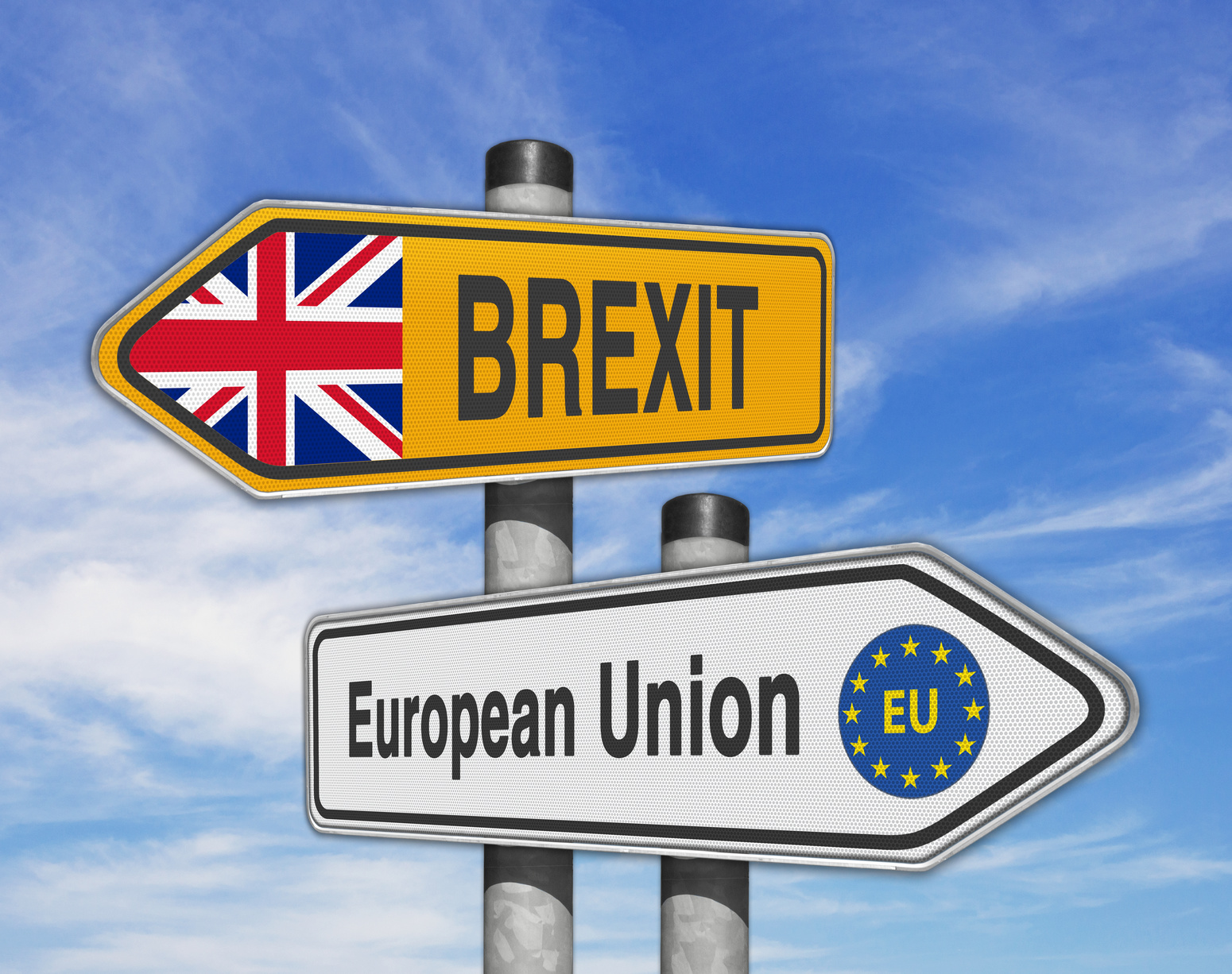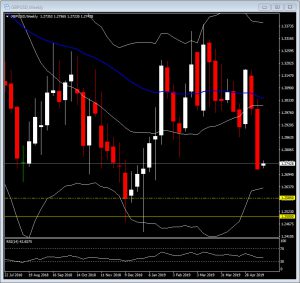GBPUSD, Weekly
No one imagined that one month from the third anniversary of the vote to leave the EU the UK would still remain in the Union and that the issue of how to leave would remain unresolved.
Talks between the government and Labour (the official opposition party) — specifically aimed at breaking the deadlock — have collapsed, and all options, theoretically, remain on the table. One thing that does look to be clear is that support for the middle ground on Brexit has fallen away substantially, with a “soft” version now looking deeply unpopular.
The final Brexit showdown is boiling down to a choice between remaining in the EU and an exit from the EU without a deal, the latter of which would see the UK adopt backstop WTO trading terms (an eventuality that many economists fear would erode the UK’s terms of trade position substantially). The polarisation will be apparent at this Thursday’s EU parliamentary elections, which in the UK has boiled down to a contest between the newly established Brexit Party,¹ which favours leaving the EU without a deal, and a pro-remain coalition, led by the Liberal Democrats (which dominated at recent local elections) and including the newly former ChangeUK Party and the Scottish National Party.
The resignation of Prime Minister May is now a fait accompli, most likely in June, when her Tory party will stage a leadership contest. Her replacement will inherit a compromised position as head of a weak minority government in a deeply divided parliament. The new leader will almost certainly have strong Brexiteer credentials, such as Boris Johnson (who is already a favourite). There would be a good chance that a new “Brexiteer prime minister” would call for a strong mandate while stealing the Brexit Party’s thunder by calling a general election and essentially making the vote another referendum on EU membership, betting victory on a “hard” Brexit with a clear pledge to leave the EU without a deal if necessary. A strong showing by the Brexit Party in this week’s EU elections would increase the likelihood of this scenario playing out, which in turn would likely spark fresh declines in the Pound.
¹https://www.telegraph.co.uk/politics/0/european-elections-2019-polls-latest-brexit-party/
Stuart Cowell
Head Market Analyst
Disclaimer: This material is provided as a general marketing communication for information purposes only and does not constitute an independent investment research. Nothing in this communication contains, or should be considered as containing, an investment advice or an investment recommendation or a solicitation for the purpose of buying or selling of any financial instrument. All information provided is gathered from reputable sources and any information containing an indication of past performance is not a guarantee or reliable indicator of future performance. Users acknowledge that any investment in FX and CFDs products is characterized by a certain degree of uncertainty and that any investment of this nature involves a high level of risk for which the users are solely responsible and liable. We assume no liability for any loss arising from any investment made based on the information provided in this communication. This communication must not be reproduced or further distributed without our prior written permission.




















